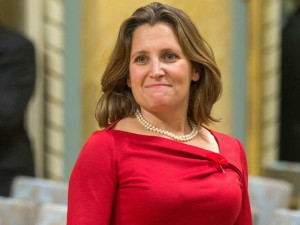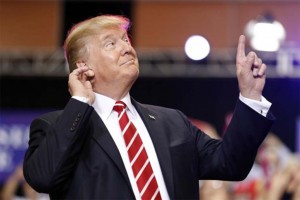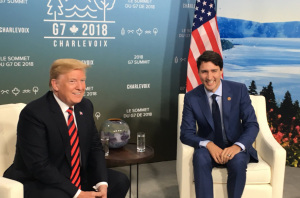A diplomatic dustup between the U.S. and Canada over the weekend could wind up killing the North American Free Trade Agreement, leaving the North American and global auto industry in a lurch.
The U.S., Canada and Mexico had been engaged in last ditch talks in effort to reach an agreement on a replacement for the existing trade agreement between the three countries, which the Trump administration has threatened to junk, claiming it was unfair to U.S. interests.
As the negotiations carried on, House Speaker Paul Ryan has already warned that the time for reaching agreement that could clear U.S. Congress already passed. The chances of a meeting in the minds among representatives of the North American countries dimmed further after a blow-up, involving Canadian Prime Minister Justin Trudeau and President Donald Trump.
Trump complained that Trudeau had dissed him during a post-summit press conference in which he said Canada was not about to bow to U.S. pressure over tariffs. “I have made it very clear to the President that it is not something we relish doing, but it something that we absolutely will do,” Trudeau said. “Canadians, we’re polite, we’re reasonable, but we also will not be pushed around.”
(Trump slaps tariffs on Canada, Mexico and EU. Click Here for the story.)

Chrystia Freeland, Canada's top NAFTA negotiator, said the dustup between the leaders of the U.S. and Canada isn't helpful in the negotiation process.
Trudeau has taken an identical position on several occasions as the trade war between the U.S. and Canada seemed to draw closer. Trump, in a tweet, claimed Trudeau had said something different behind closed doors.
Trump dispatched two of his top economic aides, former cable tv pundit Larry Kudlow and one-time academic Peter Navarro, to the Sunday morning television talk shows. Kudlow said the U.S. and Trump was prepared to sign the G-7 communique drafted during the meeting until Trudeau “stabbed them in back” and made Trump look weak as prepared to meet with North Korean leader in Singapore.
“There’s a special place in hell for any foreign leader that engages in bad faith diplomacy with President Donald J. Trump and then tries to stab him in the back on the way out the door,” Navarro said on “Fox News Sunday.”
He continued, “And that’s what bad faith Justin Trudeau did with that stunt press conference. That’s what weak, dishonest Justin Trudeau did, and that comes right from Air Force One.”
(Click Here to see more about the UAW’s support of Trump’s tariff plan.)
Foreign Affairs Minister Chrystia Freeland told The Toronto Star, “Canada does not believe that ad hominem attacks are a particularly appropriate or useful way to conduct our relations with other countries.”

The Canadian media jumped on Trump calling him "weak" and suggesting he was intolerant of opinions other than his own.
Meanwhile the Canadian press leaped to Trudeau’s defense, calling out Trump for being weak and unable to deal with opinions other than his own.
“What the vain and delicate Trump apparently expected Trudeau to say was that the summit was a success due entirely to the President’s generous participation, and that a grateful, moist-eyed Canada would no longer retaliate against his unjustified tariffs.
“Instead, the Prime Minister stood up for Canadian interests,” noted an editorial in The Toronto Globe and Mail.
The blow-up could open the door to chaos for the automakers, who have been hoping the three countries that could leave NAFTA intact with some relatively minor changes. However, the Trump administration, which has sought to revise completely the rules of origin critical to car makers, appears to believe that withdrawing from the pact and placing tariffs on cars made in the Mexico and apparently those made in Canada as well would bring jobs back to the U.S.
(To see why automakers believe Trump’s investigation of auto parts as a safety risk is ill-conceived, Click Here.)
Mexico has already that if the U.S. withdraws from NAFTA it is prepared to expand trade with Central and South America while Canada is likely to deepen its ties with the European Union.

